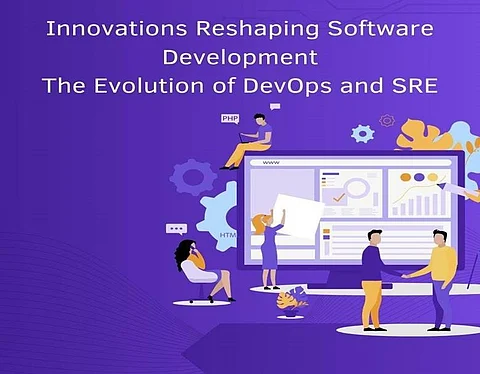

In this rapidly growing digital era, the convergence of development and operations has transformed how organizations build and maintain software. Raghavendra Rao Kanakala, a prominent voice in this domain, explores the evolution of DevOps and Site Reliability Engineering (SRE), shedding light on the cutting-edge advancements driving operational excellence. His insights highlight the fundamental shifts in automation, monitoring, and reliability engineering redefining modern software delivery.
Automation is fundamental to modern DevOps and SRE, reducing errors and accelerating deployments by minimizing manual intervention. Infrastructure as Code (IaC) ensures consistent, scalable resource provisioning across environments. Automated pipelines enhance reliability, reducing failure rates and improving recovery times for seamless software delivery. Configuration management tools maintain system consistency, preventing drift and enhancing security. Integrated automation in testing and security enables rapid vulnerability detection, mitigating risks early. By streamlining operations, automation allows teams to focus on innovation, boosting efficiency, agility, and overall software quality in dynamic environments.
With increasingly complex digital infrastructures, observability is crucial for maintaining system health. It integrates logging, monitoring, and tracing to offer real-time insights, enabling teams to detect and resolve issues proactively. AI-driven analytics and predictive monitoring help identify anomalies and prevent outages before they impact users. This approach optimizes resource utilization, reduces incident response times, and enhances service availability. Observability provides deeper performance insights by correlating metrics across systems, ensuring reliability, efficiency, and a seamless user experience.
CI/CD has transformed software development by automating testing and deployments, enabling faster, stable releases. Microservices and containerization further streamline updates with minimal disruptions. CI/CD pipelines support multiple daily releases, reducing development-to-deployment time. Automated testing ensures quality, while iterative delivery enhances agility and responsiveness, allowing companies to meet market demands and deliver software that aligns with customer expectations.
As digital services grow in importance, incident management has become critical. AI-driven alerting systems help identify and prioritize incidents swiftly, while automated remediation accelerates response times, minimizing downtime. Post-incident analysis fosters continuous learning and process improvement. Collaborative response strategies, supported by predefined playbooks, enhance efficiency. Modern incident management tools enable real-time communication, ensuring stakeholders stay informed and aligned throughout the resolution process, improving overall system reliability and resilience.
With cyber threats on the rise, integrating security into DevOps workflows has become imperative. The shift towards DevSecOps ensures that security measures are embedded throughout the development pipeline. Automated compliance checks and security scans help in identifying vulnerabilities early in the software lifecycle, thereby mitigating risks and maintaining regulatory adherence.
Security automation includes implementing role-based access controls, encrypting sensitive data, and continuously monitoring system behavior for potential threats. DevSecOps practices also promote secure coding standards, ensuring security is shared across development and operations teams. By embedding security into the DevOps lifecycle, organizations can achieve faster incident detection and response while maintaining compliance with industry regulations.
Beyond technical advancements, DevOps and SRE emphasize a cultural shift towards collaboration and shared responsibility. Cross-functional teams are breaking traditional silos, fostering a more cohesive approach to software development and operations. A blame-free incident resolution culture encourages transparency and continuous improvement, making organizations more resilient to challenges.
The DevOps culture promotes open communication and shared objectives, aligning development and operations teams toward common goals. Organizations that embrace this cultural transformation report higher efficiency, reduced deployment failures, and improved employee satisfaction. Furthermore, continuous learning and skill development are encouraged, empowering teams to stay ahead of technological advancements.
Organizations are making their DevOps and SRE methodologies more mature and the future looks for greater autonomy. AI and ML will be the core of operations; driving self-healing systems that are capable of self-diagnosing and fixing problems autonomously. The trend towards edge computing and serverless architectures has been promoting better scalability and efficiency.
So, we anticipate some automation of all operational activities. Say bye to reacting to problems, as predictive analytics will help preemptively resolve incidents, while intelligent automation is all about improving resource consumption. These two automatons will work together to bet the reliable system performance, lower costs of operations, and to increase business adaptability.
Summarily, Raghavendra Rao Kanakala has uncovered great transformation in todays Software Engineering with DevOps and SRE. Automation, observability, security, cultural evolution are gradually hitting the way toward operational maturity. Future hinges toward innovation and reliability. In this evolving space, those who align toward these values will indeed take a few steps forward in technological progression to ensure software delivery is seamless and performance stands unchallenged.
